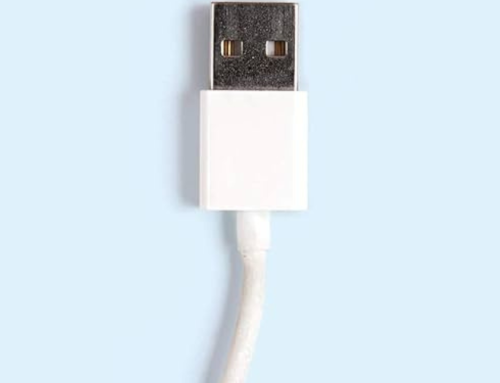
The human experience is fundamentally intertwined, where our thoughts, feelings, and physical sensations exist in a constant dance of influence. This complex and undeniable “body-mind connection” plays a crucial role in both mental health and the healing process. Eye Movement Desensitization and Reprocessing (EMDR), a powerful therapeutic technique, has emerged as a compelling example of how integrating this connection can be instrumental in treating various psychological issues, particularly trauma-related disorders.
Understanding Trauma and the Body-Mind Connection
Trauma, defined as an overwhelming experience that disrupts our sense of safety and security, can leave lasting impacts on both mental and physical well-being. During a traumatic event, the brain may struggle to process information effectively, leading to unintegrated memories that remain stored in a “raw” form. These fragmented memories often include not only vivid images and emotions but also associated physical sensations like tightness in the chest, rapid heart rate, or sweating.
When triggered by reminders of the trauma, these unprocessed memories and their associated physical sensations can resurface, leading to flashbacks, nightmares, and intense emotional distress. The body-mind connection in trauma plays a critical role in this cycle, where emotions and memories become linked, perpetuating negative thoughts and feelings.
EMDR and the Body-Mind Connection: A Multi-faceted Approach
EMDR therapy stands out in its holistic approach, recognizing and addressing the intricate relationship between the mind and body in the healing process. While the specific mechanisms of EMDR are still under investigation, it is believed to work by stimulating the brain’s natural information processing system and facilitating the integration of traumatic memories.
This integration occurs through bilateral stimulation, the core element of EMDR therapy. During a session, the therapist guides the client to focus on the disturbing memory while engaging in bilateral stimulation, which can involve eye movements following the therapist’s finger, tapping sounds alternating between ears, or other bilateral sensory experiences. This bilateral stimulation is thought to activate the brain’s natural processing networks, allowing the client to revisit the memory in a safe and controlled environment.
As the client revisits the memory, EMDR and the body-mind connection become crucial. The therapist encourages the client to pay attention to any thoughts, emotions, and physical sensations that arise during the processing. This focus on the body’s signals allows the client to identify and explore the physical manifestations of the trauma. By acknowledging and addressing these physical sensations, EMDR and the body-mind connection pave the way for a more holistic healing process.
EMDR and the Body-Mind Connection: Promoting Healing
Through this multi-faceted approach, EMDR and the body-mind connection facilitate several positive outcomes.
First, EMDR can help desensitize the negative emotions and associated physical sensations linked to the traumatic experience. By repeatedly processing the memory while remaining calm and grounded, the client can detach the powerful emotional charge and physical discomfort from the event.
Second, EMDR can facilitate reprocessing the traumatic experience. As the client revisits the memory through EMDR and the body-mind connection, they can gain new perspectives and insights. This allows them to replace negative beliefs associated with the trauma with more adaptive and empowering ones.
Finally, EMDR can empower integration of the traumatic memory into the client’s overall life narrative. By processing the memory and its associated emotions and physical sensations, the trauma no longer holds the same power over the individual. It becomes a part of their story, but not the defining factor.
EMDR and the Body-Mind Connection: Beyond Trauma
While EMDR has established itself as a powerful tool for addressing trauma, its application extends beyond this realm. Research suggests that EMDR and the body-mind connection could be beneficial for various mental health issues, including:
- Anxiety disorders: By desensitizing negative emotions and associated physical sensations related to anxiety triggers, EMDR can help individuals manage anxiety more effectively.
- Depression: By addressing underlying negative beliefs and self-perceptions often linked to depression, EMDR can improve mood and overall well-being.
- Phobias: Similar to treating anxiety, EMDR can help individuals extinguish the fear response associated with phobias by desensitizing them to the phobic stimuli.
EMDR’s effectiveness lies in its comprehensive approach, integrating the mind and body through its various components. By acknowledging and addressing the body-mind connection, EMDR empowers individuals to heal from traumatic experiences, build emotional resilience, and reclaim control over their lives. As research continues to explore the intricate mechanisms of EMDR and the body-mind connection, this therapeutic approach holds significant promise for individuals seeking to overcome various mental health challenges and lead a healthier, more fulfilling life.
Share This Story, Choose Your Platform!
The Best Address for EMDR Equipments: emdrtech
emdrtech stands at the forefront of the industry, offering cutting-edge solutions and equipment for EMDR therapy. Our aim is to empower therapists with the tools they need to administer highly efficient and readily available treatments to their clients.
For those practicing EMDR therapy, we urge you to explore the ways in which emdrtech can enhance your profession. Take a moment to visit our website, where you can peruse our extensive range of products and services, and delve into our unwavering dedication to pushing the boundaries of innovation!
While MAT and DAT models provide auditory-vibration bilateral stimulation, the upper-segment model ATV comes with a multicolor LED bar and provides triple stimulation functions including visual, auditory, and vibration.
You can find all kinds of information about emdrtech devices, which are developed with the joint initiative of expert engineers and EMDR therapists, on our product introduction pages.
For information EMDR equipments, you can contact us at info@emdrtech.com or through our WhatsApp contact line at +90 (507) 107 31 11.






